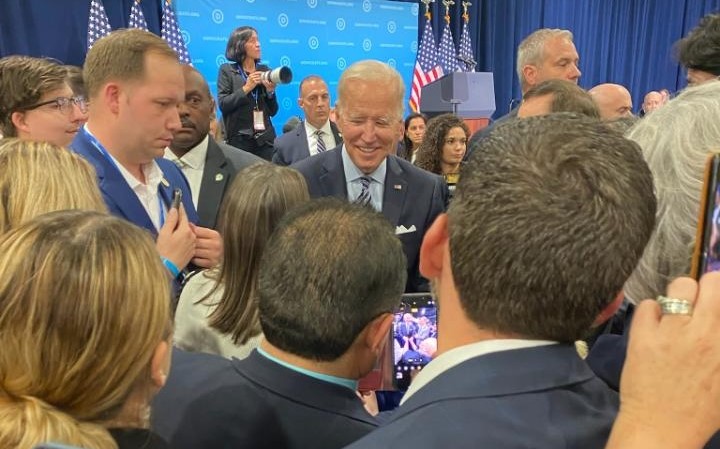Biden-Harris Administration Announces $26 Million for Major Route 7 Infrastructure Project Between Jersey City and Belleville

Biden-Harris Administration Announces $26 Million for Major Route 7 Infrastructure Project Between Jersey City and Belleville
This year’s INFRA awards emphasize projects that strengthen supply chains, help make goods more affordable and are located in rural areas and historically disadvantaged communities
DETROIT – Today, U.S. Secretary of Transportation Pete Buttigieg announced that the Biden-Harris Administration has awarded $26 million to the New Jersey Department of Transportation (NJDOT) from the popular Infrastructure for Rebuilding America (INFRA) competitive grant program. INFRA supports highway, multimodal freight and rail projects that will make the nation’s transportation systems safer and more resilient, eliminate supply chain bottlenecks, and improve critical freight movements.
President Biden’s Bipartisan Infrastructure Law increased funding for the INFRA program by more than 50 percent to help meet high demand for federal funding to support projects across the country. Over the next five years, the Bipartisan Infrastructure Law will provide approximately $8 billion for the INFRA program, including the $1.5 billion made available in this round of funding.
“Today we are announcing transformative investments in our nation’s roads, bridges, ports, and rail to improve the way Americans get around and help lower the costs of shipping goods,” said U.S. Transportation Secretary Pete Buttigieg. “Using funding from President Biden’s Bipartisan Infrastructure Law, we are able to support more excellent community-led projects this year than ever before.”
NJDOT’s award will support needed drainage improvements on approximately two miles on Route 7 between Jersey City and Belleville, which is prone to flooding. The project will raise the roadway by approximately 3.5 feet, add three pump stations, raise and improve a bridge approach, and install new pipes, inlet structures, outfalls, and flood walls. These improvements will prevent flood-related roadway closures and detours that compromise the safety of travelers, disrupt normal traffic flow, and contribute to pavement deterioration.
In addition to prioritizing projects that will deliver national or regional economic benefits, INFRA projects were also evaluated based on safety, how they supported freight movement and job creation, their efforts to address climate change and resiliency, impacts on equity and quality of life, how they applied innovative technology, their cost effectiveness, and demonstrated project readiness. Further, USDOT awarded a significant amount of funding to rural areas, historically disadvantaged communities, and areas of persistent poverty to address historic underinvestment in these communities. Approximately 43% percent of awards will go to rural projects, exceeding the statutory requirement to award rural projects 25% of INFRA funding.
The Bipartisan Infrastructure Law also expanded INFRA eligibility to include, for example, wildlife crossing projects, marine highway corridor projects, and surface transportation projects located within or functionally connected to an international border crossing.
The full list of awards can be found on the Department of Transportation’s website: https://www.transportation.gov/grants/infra-2022-fact-sheets
More information can be found on the Department’s INFRA site located at: https://www.transportation.gov/grants/infra-grants-program








